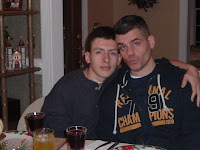
Chess and Mental Development
In an important study in the mid-1920’s, the psychologists Djakow, Petrowski, and Rudik concluded, from their observations of chess grandmasters, that accomplishment in chess came from “exceptional visual memory, combination power, speed of calculation, power of concentration, and logical thinking” (as cited in Ferguson Jr., 1995, p. 1). Further, other psychologists have theorized that besides requiring the aforementioned attributes, chess essentially cultivates them. John Artise draws upon his years of psychological research in chess to identify the contribution chess makes in mental development. In his article
Chess and Education, Mr. Artise asserts, “Visual stimuli tend to improve memory more than any other stimuli…chess is definitely an excellent memory exerciser the effects of which are transferable to other subjects where memory is necessary” (as cited in Ferguson Jr., 1995, p. 1).
In an effort to confirm that chess does develop mental abilities, Dr. Albert Frank conducted an experiment at the Lisanga School in Kisangani, Zaire, during the 1973-74 school year. This groundbreaking work became the article
Chess and Aptitudes or the Zaire study. The experiment had the following organization:
"Ninety-two (92) students, 16-18 years of age, were selected from the fourth year humanity’s class and distributed at random into two groups (experimental and control) of 46 students each. All of the students were given a battery of tests which included the Primary Mental Abilities test (PMA) in the French adaptation, the Differential Aptitude Test (DAT), the General Aptitudes Test Battery (GATB), and a Rohrschach test. The tests were administered to all of the students both before and after the school year, except for the DAT which was administered only before
the school year and the Rohrschach which was given only after the school year. At the end of the first semester, a partial retesting was made. The experimental group was given a required chess course of two hours each week with optionalplay after school and during vacations." (as cited in Ferguson Jr., 1995, p. 2)
Robert Ferguson Jr., (1995, p. 2) reported that Dr. Frank had two hypothesis concerning chess and its affect on cognitive development. The first hypothesis concerned itself with the necessary skills that form the basis of the ability to learn how to play chess well. The second hypothesis theorized that learning to play chess well contributed to the development of the ability to learn other skills. The result confirmed the first hypothesis, specifically, “There was a significant correlation between the ability to play chess well, and spatial, numerical, administrative-directional, and paper work abilities.” Additionally, confirmation of the second hypothesis, in particular: “… learning to play chess had a positive influence on the development of both numerical and verbal aptitude.” Dr. Frank found that playing chess assists in mental development because chess makes the most of an individual’s potential and enhances it further, therefore, making chess beneficial in education.





















